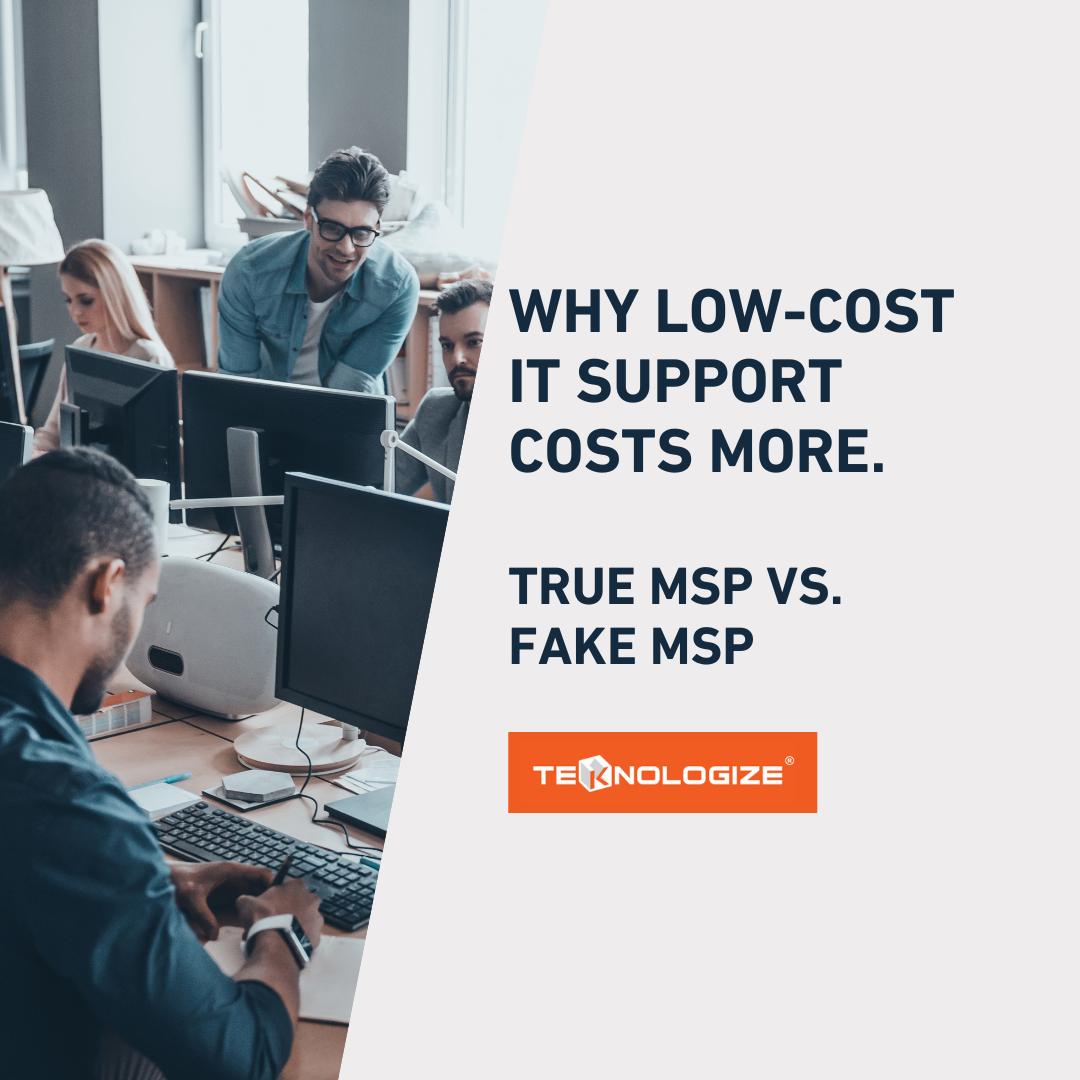Endpoint Detection and Response (EDR): Enabling Secure Growth for Small Businesses
Cybercriminals don’t go after businesses because they’re big.They go after businesses because they’re accessible. According to the IBM Cost of a...

When was the last time your network had a full health check?
If you're like many businesses, the answer might be "never" or "longer ago than it should have been."
Without regular evaluations, your IT environment could be hiding critical vulnerabilities — the kind cybercriminals are constantly looking to exploit. Whether you manage your systems internally or rely on a managed IT services provider, regular assessments are crucial to maintaining strong security.
A Network Assessment, sometimes called an IT Assessment, is one of the smartest ways to uncover hidden risks across your systems, network, and devices. Whether you manage your technology in-house or partner with an IT services provider, regularly assessing your infrastructure is key to strengthening your cybersecurity posture and protecting your business.
When we do Assessments or Penetration Tests, we almost always find a few common vulnerabilities, and they are ALL dangerous to your business. Every business owner and IT support team should be aware of these vulnerabilities.
Here are the top 5 we see:
1. Unpatched Systems
Outdated software creates serious gaps in your defenses. Software developers release patches specifically to fix vulnerabilities — but when patches aren’t applied, those vulnerabilities remain wide open for attackers.
Even one unpatched device on your network can serve as an easy entry point.
Best practice: Make patch management a top priority across servers, workstations, applications, and even third-party tools.
2. Weak Authentication
Strong passwords alone are no longer enough to stop modern cyber threats. Many successful attacks today stem from compromised credentials.
Without additional protections like multi-factor authentication (MFA), a stolen or guessed password could give hackers direct access to critical systems.
Best practice: Enforce MFA on all accounts and educate employees about creating complex, unique passwords.
3. Lack of Access Controls
Not every user needs access to every system or piece of information. If access controls aren't clearly defined, sensitive data could be exposed — either accidentally or intentionally.
This increases the risk of insider threats, data leaks, and unauthorized system changes.
Best practice: Follow the principle of least privilege by granting employees only the access necessary for their roles, and review permissions regularly.
4. Insufficient Logging and Monitoring
Many security incidents go unnoticed simply because organizations aren't monitoring their systems closely enough.
Cybercriminals often spend weeks or months inside networks before launching a major attack, taking advantage of blind spots.
Best practice: Implement comprehensive 24/7 monitoring and logging to catch unusual activity early and reduce the time attackers have to do damage.
5. Weak Mobile Device Security
Mobile devices are an often overlooked security risk. Smartphones, tablets, and laptops — especially when employees use personal devices for work — can bypass traditional network defenses.
If these devices aren't properly secured, they can act as a “back door” for cybercriminals.
Best practice: Use mobile device management (MDM) solutions, enforce strong security settings, and ensure that only approved, protected devices can access company data.
Uncovering and addressing vulnerabilities is not just about cybersecurity — it's about protecting your business continuity, client trust, and financial stability.
Neglecting IT risks can lead to costly breaches, legal penalties, operational downtime, and reputational damage. Proactive IT support means identifying these risks early and strengthening your defenses before an incident occurs.
A professional Network Assessment gives you a clear, comprehensive view of where you stand — helping you build a stronger, more resilient IT environment.
If you’re unsure how secure your network really is, a Network Assessment can provide valuable clarity. It's a smart first move toward improving your overall IT services, strengthening cybersecurity, and reducing future risks.
Stay ahead of threats — not behind them.
Talk to your IT support provider or a trusted technology partner about scheduling a security evaluation today.
![]() Teknologize is a SOC 2 Type II accredited Managed IT and Cybersecurity provider serving small to mid-sized businesses across Washington and Oregon. We deliver full-service Managed IT Support, Co-Managed IT Support, advanced Cybersecurity Solutions, and IT Compliance Services for regulated industries, including Healthcare, Financial Institutions, the Utilities Sector, Manufacturing, and Professional Services.
Teknologize is a SOC 2 Type II accredited Managed IT and Cybersecurity provider serving small to mid-sized businesses across Washington and Oregon. We deliver full-service Managed IT Support, Co-Managed IT Support, advanced Cybersecurity Solutions, and IT Compliance Services for regulated industries, including Healthcare, Financial Institutions, the Utilities Sector, Manufacturing, and Professional Services.
👉 Book a Discovery Call to see how Teknologize can support your business.
Our Offices
Tri-Cities, Washington – 509.396.6640 | Yakima, Washington – 509.396.6640
Bend, Oregon – 541.848.6072 | Seattle, Washington – 206.743.0981
Questions about your IT or Cybersecurity? Give us a call today!
%20Enabling%20Secure%20Growth%20for%20Small%20Businesses.png)
Cybercriminals don’t go after businesses because they’re big.They go after businesses because they’re accessible. According to the IBM Cost of a...

IT Support Companies Can All Sound the Same, Until You Know What to Look For Business owners all want the same thing from their IT: reliability,...

Many SMBs don’t actually have an IT budget; they have a list of last year’s expenses. Everything goes into one bucket, and next year’s “budget” is...